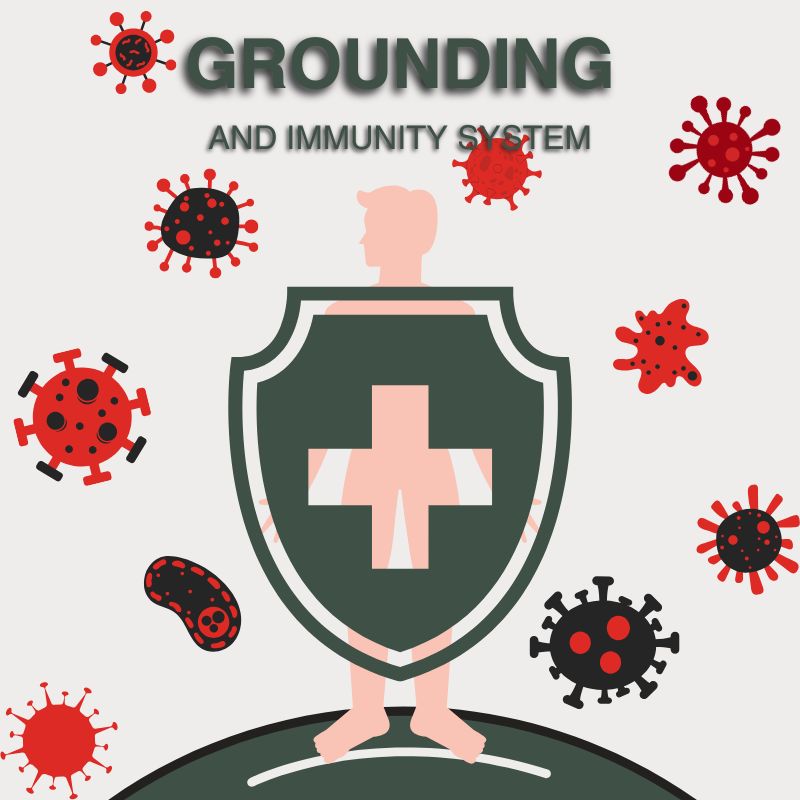
How Grounding May Support Immunity: Exploring the Connection Between Earth and Health
In the ever-evolving world of wellness, many people are returning to the simplest, most natural methods of supporting their health—methods that reconnect them with the earth itself. One such practice is grounding, also known as earthing, which involves direct physical contact with the Earth's surface electrons. Whether it’s walking barefoot on the grass, lying on the beach, or using specially designed grounding products, the aim is to restore the body’s natural electrical balance. And while grounding is often associated with better sleep, reduced stress, and decreased inflammation, an intriguing area of research is its potential effect on immunity. Could this ancient, intuitive connection with the earth really help strengthen our immune system?
To understand how grounding may support immunity, it’s important to recognize that the human body is not separate from nature—it is an extension of it. Our cells, our nervous system, and even the subtle energy fields of the body operate in constant communication with the environment. However, in our modern lifestyles, we are increasingly cut off from that environment. We spend most of our time indoors, in shoes, in cars, under artificial lighting, surrounded by electronic devices. This disconnect may have consequences not only for our mental well-being but also for the very foundations of our physical health, including our immune function.
One of the key mechanisms through which grounding may influence immunity is its ability to reduce chronic inflammation. Inflammation is the body's natural response to injury or infection, but when it becomes chronic—as it often does due to stress, poor diet, lack of sleep, or environmental toxins—it can begin to damage tissues and suppress immune function. Research suggests that grounding helps reduce inflammation by allowing the body to absorb free electrons from the Earth’s surface. These electrons act as natural antioxidants, neutralizing excess free radicals that contribute to inflammatory processes. When inflammation is lowered, the immune system is no longer in a constant state of emergency and can operate more effectively and efficiently.
Another factor to consider is the impact of grounding on the nervous system, particularly the autonomic nervous system, which governs the body's stress response. Chronic stress weakens immune function by increasing cortisol levels and suppressing the production of key immune cells. Grounding has been shown to activate the parasympathetic nervous system—the “rest and digest” branch—leading to a calming effect on the body and mind. Studies have observed lowered cortisol levels, improved heart rate variability, and better sleep in individuals who regularly practice grounding. These changes are significant because they create the optimal internal environment for the immune system to regenerate, repair, and respond to threats effectively.
In addition to reducing inflammation and stress, grounding may support immunity by improving circulation and oxygenation of the body’s tissues. Good circulation ensures that immune cells are effectively transported throughout the body, where they are needed to detect and destroy pathogens. Preliminary research has shown that grounding can influence the zeta potential (a marker of red blood cell charge), making blood cells less likely to clump and more efficient in delivering oxygen and nutrients. Improved blood flow also facilitates the removal of toxins and metabolic waste, helping to maintain a clean internal terrain that is less conducive to illness.
What’s particularly interesting is how grounding appears to affect the body as a whole system, rather than targeting just one aspect of health. The immune system does not operate in isolation—it is intimately connected with the endocrine system, the nervous system, the digestive system, and the energetic system of the body. Grounding may offer support across all these systems simultaneously, creating a ripple effect of balance and resilience. In this way, it aligns with the philosophy of holistic health: working with the body’s natural intelligence rather than against it.
Anecdotal evidence from people who practice grounding regularly includes fewer colds, quicker recovery from illness, improved energy levels, and a general sense of greater vitality. While more large-scale scientific studies are still needed to confirm these effects conclusively, the growing body of smaller studies and personal experiences cannot be ignored. Given the simplicity, accessibility, and safety of grounding, it’s an area of health worth exploring—especially in a time when boosting immunity has become more important than ever.
There’s something deeply comforting and empowering about the idea that we don’t need to search far and wide for ways to strengthen our immunity. The earth beneath our feet, long overlooked in the modern wellness toolkit, may hold a key to resilience and healing. Whether through direct contact with nature or using grounding products during sleep or work, reconnecting with the Earth might be one of the most fundamental things we can do for our immune system.
Grounding invites us to remember that health is not just a matter of biochemistry, but of bioelectricity and balance. As we continue to rediscover the wisdom of nature and the healing potential of simple practices, grounding stands out as a beautiful, humble, and powerful ally in our journey toward greater well-being.
